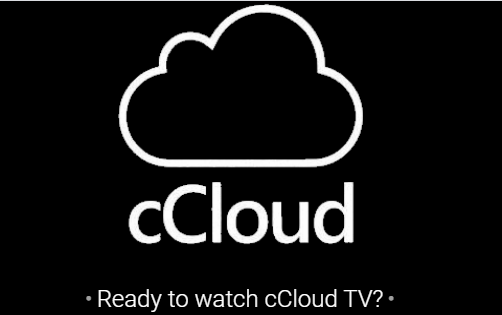 When cCloud first appeared on the scene years ago, it billed itself as the ‘Popcorn Time for Live TV’.
When cCloud first appeared on the scene years ago, it billed itself as the ‘Popcorn Time for Live TV’.
It was one of the first services that allowed users to access premium IPTV streams for free through an easy to use interface.
CCloud worked by scraping third-party sources to find free streams, presenting them in a single interface that could be accessed on the web and on platforms such as Roku and Kodi.
A Popular Solution to Expensive Cable Subscriptions
Developer ‘Bane’ originally started the project as a tool for personal use, at a time when he no longer could afford expensive cable subscriptions. His solution was to combine all pirate IPTV streams he could find into a single service.
This proved to be a popular idea, as the userbase shot up soon after the service was made public.
“A week after launch, the website already had some heavy traffic, likely because it was so easy to use. After two weeks it had already grown beyond what I ever imagined,” Bane said.
Back then, the torrent-based app Popcorn Time was making mainstream headlines. The developer of cCloud cleverly used this to advertise his service as the ‘Popcorn Time for Live TV,’ an angle that paid off as it raised the interest of news outlets.
Takedowns and Legal Pressure
This attention and the ever-increasing visitor numbers also came with a downside. Slowly but steadily, copyright holders started to take notice. They were not happy with what they saw and started sending DMCA notices, demanding that links to their content were removed.
“It was scary when I got my first DMCA,” Bane tells us, and at one point he was worried that he might have to go to jail. In a panic move, he pulled everything offline.
Shutting down permanently in the midst of the high user demand didn’t feel right though. Since cCloud didn’t host any copyrighted material and relied on third-party links, Bane brought it back after a week, explaining in more detail how it worked.
This reduced the number of DMCA notices and cCloud was back on track. With help from volunteer developers it kept growing and expanding, making it one of the most-used apps on Kodi, Plex, and Roku.
Amidst the project’s expansion, the legal pressure was always looming. For example, cCloud was prominently named as an infringing service in the Canadian lawsuit against TVAddons, which was filed in 2017.
A year later, the popular media player Roku also decided to ban the application, presumably over copyright infringement concerns. These issues eventually resulted in an exodus of developers.
Developers Start Leaving
“After the TVAddons situation things kind of went downhill. Developers who were helping me with various platforms decided to leave for good,” Bane recalls.
“So I was left all alone and had to manage all of the servers and the backend for each platform on my own. I tried to get help from developers and some tried to help but, once they realized how much work is involved to keep things running, they just gave up.”
Keeping cCloud online with a one-man team wasn’t an easy task. While the streaming link scrapers are automated, they have to be updated frequently, as ‘publishers’ update them continuously.
“cCloud Bots scrapers have been running for years but they are not bulletproof. Just like any other scrapers, they break if the source changes or is updated,” Bane says.
Throwing the Towel
This essentially resulted in a perpetual cat-and-mouse game. CCloud worked, most of the time, but that consumed a lot of time and effort. And with user numbers dwindling, Bane decided to voluntarily throw in the towel.
“Things have been running fine for years but sometimes you just have to let things go so I have now made the tough decision to let the project go,” he says.
While the official cCloud site remains online the scrapers are no longer updated. This means that the service is pretty much unusable now and most premium channel streams have been down for a few months already.
“Most of the users want premium channels and those won’t be there anymore. The sad reality is that cCloud is dead already,” Bane notes.
The developer will let the main servers expire next month and the automation server won’t be renewed in November either. cCloud will then simply disappear.
While Bane is sad to see his ‘baby’ gone, he believes it’s for the best. cCloud proved a point and served its purpose. In fact, in a small way, it may have helped some big content providers to offer IPTV services. These are more common today.
“There currently are a lot of legal IPTV alternatives out there. This was not the option when I started the project five years ago. Today you have Philo, Hulu, YouTube TV, Fubo Tv and many more.
“In general, all of the big players have already stepped into the IPTV arena with affordable costs and stable streams,” Bane concludes.





